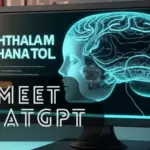The Promising Role of Artificial Intelligence in Advancing General Sciences
Artificial Intelligence (AI) is a rapidly growing field that has the potential to revolutionize various industries, including general sciences. AI is defined as the ability of machines to perform tasks that would normally require human intelligence, such as perception, reasoning, and learning. In general sciences, AI can be used to improve data analysis, prediction modeling, and decision-making. In this article, we will explore the role of AI in general sciences and its impact on scientific research.
The role of AI in data analysis
Data analysis is an essential part of scientific research, and AI can help scientists process and analyze large amounts of data quickly and efficiently. AI algorithms can identify patterns and trends in data sets that would be difficult for humans to recognize. For example, in astronomy, AI can help scientists analyze large amounts of data from telescopes and identify new objects in the universe.
AI can also help scientists analyze complex biological data sets. For example, in genetics, AI can help scientists identify patterns in DNA sequences and predict the likelihood of certain genetic diseases. AI algorithms can also analyze data from medical imaging, such as MRIs and CT scans, to detect and diagnose diseases more accurately.
The role of AI in prediction modeling
Prediction modeling is another area where AI can be useful in general sciences. AI algorithms can be trained on historical data to predict future trends and events. For example, in climate science, AI can be used to predict future weather patterns and identify potential climate risks.
In chemistry, AI can help predict the properties of new molecules, which can be useful in drug discovery. AI algorithms can also be used to predict the behavior of materials under different conditions, which can be useful in materials science.
The role of AI in decision-making
AI can also be used to improve decision-making in general sciences. AI algorithms can be used to analyze data and make recommendations based on the findings. For example, in ecology, AI can be used to analyze data on animal populations and make recommendations on conservation strategies.
AI can also be used to improve decision-making in healthcare. AI algorithms can analyze patient data and provide recommendations for treatment plans based on the patient’s medical history and current condition.
The impact of AI on scientific research
AI has the potential to revolutionize scientific research by enabling scientists to process and analyze data more quickly and efficiently. AI algorithms can identify patterns and trends in data sets that would be difficult for humans to recognize, which can lead to new discoveries and insights.
AI can also help scientists make predictions about future trends and events. For example, in climate science, AI can be used to predict future weather patterns and identify potential climate risks. In chemistry, AI can help predict the properties of new molecules, which can be useful in drug discovery.
Furthermore, AI can improve decision-making in general sciences by providing recommendations based on data analysis. This can be useful in healthcare, where AI algorithms can analyze patient data and provide recommendations for treatment plans based on the patient’s medical history and current condition.
However, there are also concerns about the impact of AI on scientific research. Some scientists worry that AI could replace human scientists in certain areas, such as data analysis. Others worry that AI could be used to manipulate data to support certain agendas or biases.
Conclusion
AI has the potential to revolutionize scientific research in many ways. It can help scientists process and analyze data more quickly and efficiently, make predictions about future trends and events, and improve decision-making in general sciences. However, there are also concerns about the impact of AI on scientific research, and it is important for scientists to carefully consider the ethical implications of AI in their work.












